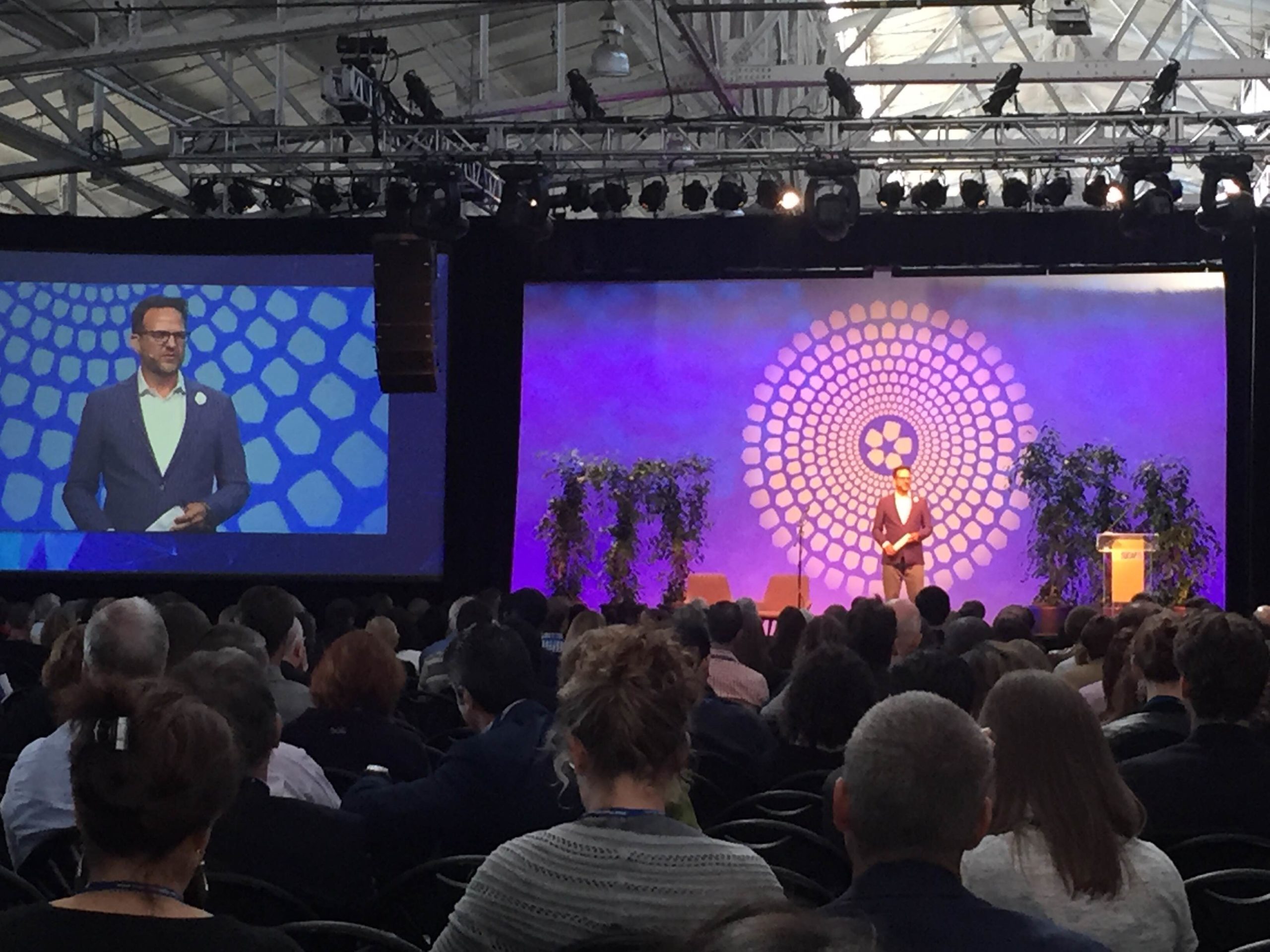We’re digging out after four busy days at last week’s SOCAP, the Social Capital Markets conference and found a few more highlight:
Manufactured fertilizers, animal feedlots and industrial agriculture drive carbon. Industrial agriculture degrades the oceans through excessive runoff of topsoil from fields and the associated chemical pollution from petroleum-based fertilizers and pesticides. Carbon-sequestration warriors like Estancia Grass Fed Beef and Fibershed see agriculture as a partner. Healthier beef raised on a blend of grasses that sequester carbon and re-generate topsoil could create a business based on carbon sequestration, and an alternative to the 99 percent of American beef that is now feedlot fed.
John Roulac from Nutiva is an advisor to Kiss the Ground, which is advocating for a soil fund to promote sustainable agricultural techniques. The mass extinction of 52 million years ago that ended 90 percent of life on Earth, was in part a function of catastrophic ocean acidification. That’s a fair warning for what humans might bring upon themselves with today’s ocean acidification. As Teddy Roosevelt said (channeled by Roulac): “The nation that destroys its soil destroys its oceans.” (Maura Dilley)
Is wool the new cotton? Cotton is a global commodity heavily dependent on water and chemicals for production. New mill technology could make wool a viable, local (and soft) substitute for cotton. When grazed in the right way, sheep could also help with soil regeneration. The need for climate change resilience could drive funding for soil regeneration. (Maura Dilley)
Turkish factory owners are pressed from all sides in the refugee crisis. Syrian refugees, including children, want to work but don’t have license to. Then the police beseech them them to hire a number of refugee workers to keep them off the streets, explained Kohl Gill of LaborVoices. Gill’s company has been working with global apparel companies to ensure refugees, along with other workers, are being treated fairly. (Jessica Pothering)
Supply chain strategies shift from risk to opportunity. Corporate social responsibility initiatives are taking a more proactive approach. “We’re seeing companies become less risk averse and move from wanting to do no harm to wanting to do good. Companies are also more willing to share the cost and share best practices,” observed Emma Goodman of Solidaridad. (Jessica Pothering)
A toolkit for replication can help social ventures avoid pitfalls. One company white-labeled an MBA program and was allowed to scale rapidly in cities across the country. The founders were pleased the company scaled, but regret they gave away their brand so easily. The Social Replication Toolkit can help identify ways to scale social ventures. Ask the right questions: Is the venture ready to replicate? Is there the right leadership, the right mix of aspirations and staff who can execute? Is this venture worth scaling? Social franchising, open sourcing, white labeling, licensing — all have pros and cons. (Anna Shen)











